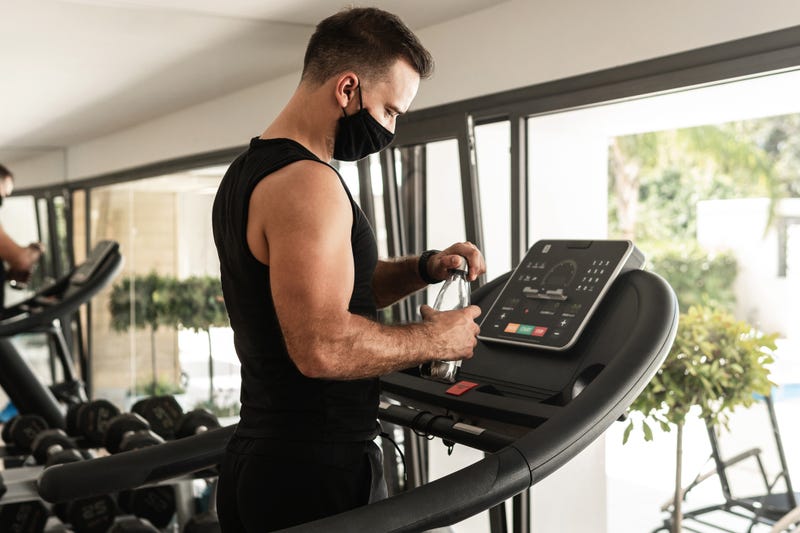
After a brief spell early this past summer, indoor masking requirements are once again loosening in two Bay Area counties: San Francisco and Marin.
While many are looking forward to the relaxed rules, it's difficult to shake the eerie feeling it may not last, like the last time San Francisco eased its masking mandate and the delta variant hit the scene.

Back in May, Dr. Bob Wachter, Chair of the Department of Medicine at UCSF, was one of the hopeful experts looking forward to dropping masking and believed COVID-19 was in "the rearview."
"We got slammed," he said on KCBS Radio's "Ask an Expert" with KCBS Radio's Dan Mitchinson. "There's some unpredictability still, but we're in a good place now, particularly in the Bay Area."
"I’m feeling pretty optimistic," he said.
The new guidelines, starting Friday, won’t affect restaurants or bars, but will instead focus on places where the people coming and going of up to 100 fully vaccinated people, such as offices and gyms.
Easing masking restrictions makes sense as cases have gone down, test positivity rates have gone down, and vaccination rates have gone up, said Wachter. It’s good to allow people to get back to normal, but we have to do it carefully and thoughtfully, he said.
"We don't want to go too fast," he said, and risk everything getting shut down again.
But in certain scenarios, it's reasonable to forgo masking, like in an office where it’s known that all employees are vaccinated and someone will stay home and get tested if they’re feeling unwell. Just as it's reasonable for those who are immunocompromised or over the age of 65 and haven’t received a booster yet to continue wearing their masks.
"I think people should feel free to make their own choices that make sense with their own individual situations," said Wachter.
Looking ahead to the holidays, those traveling should exercise more caution. "There's still a lot of virus around, particularly in other parts of the country, less so in the Bay Area," he said. "As more people come together, and particularly if people do lower their guard, it’s likely that we’re going to see spikes."
The Bay Area is highly protected by the fact that about 80% of people in the Bay Area are now fully vaccinated. The chances of a surge that will lead to mass hospitalizations is very low, said Wachter.
People should still mask when appropriate, and continue to get vaccinated. But this new phase is a step in the right direction.
"We can't be like this forever," he said. "The virus will be around us for a very, very long time."

